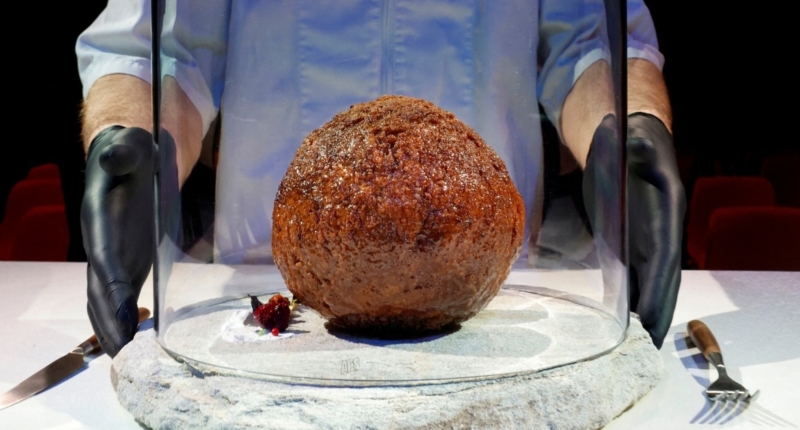Scientists from Vow, an Australian meat company, have presented a meatball made from laboratory-grown woolly mammoth meat in Amsterdam, claiming that this could pave the way for the food of the future. However, the meat is not yet ready for consumption, as safety tests must be performed first. The DNA of mammoth myoglobin was previously sequenced, and the protein that gives meat its flavor was completed with genes from the African elephant. Livestock is responsible for 14.5% of global human-caused greenhouse gas emissions, and global meat consumption has nearly doubled since the early 1960s. Scientists are exploring alternatives such as plant-based or lab-grown meat, with a prediction that meat consumption will increase by 70% by 2050.
Scientists Present Mammoth Meatballs at Museum in the Netherlands
On Tuesday, a meatball made from laboratory-grown woolly mammoth meat was presented in Amsterdam by scientists who claim that this “journey” into the past could pave the way for the food of the future. The delicacy is on display under a glass dome at the NEMO Science Museum in the Dutch capital, but it is not yet ready for consumption due to safety tests that must be performed before modern humans can eat it. The meatball was made by scientists from Vow, an Australian meat company, who had previously sequenced the DNA of mammoth myoglobin, the protein that gives meat its flavor, and completed it with genes from the African elephant inserted into pregnancy cells with the help of an electrical discharge.
According to Tim Noakesmith, Vow’s co-founder, the company chose woolly mammoth meat as it is a symbol of loss, extinguished by climate change in the past, and they face a similar fate if things don’t change, such as drastically altering agricultural practices and the way people eat. Global meat consumption has nearly doubled since the early 1960s, and according to figures from the Food and Agriculture Organization of the United Nations (FAO), livestock is responsible for 14.5% of global human-caused greenhouse gas emissions. Scientists are looking for alternatives, such as plant-based or lab-grown meat, with a prediction that meat consumption will increase by 70% by 2050.
The reconstruction of a specimen of a woolly mammoth found in the Royal Museum of British Columbia was included in the report.
Don’t miss interesting posts on Famousbio










